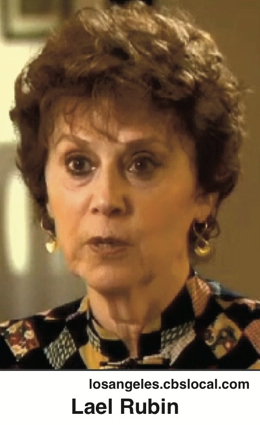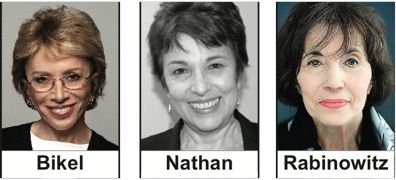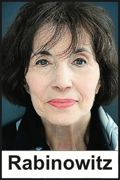Rascals case in brief
In the beginning, in 1989, more than 90 children at the Little Rascals Day Care Center in Edenton, North Carolina, accused a total of 20 adults with 429 instances of sexual abuse over a three-year period. It may have all begun with one parent’s complaint about punishment given her child.
Among the alleged perpetrators: the sheriff and mayor. But prosecutors would charge only Robin Byrum, Darlene Harris, Elizabeth “Betsy” Kelly, Robert “Bob” Kelly, Willard Scott Privott, Shelley Stone and Dawn Wilson – the Edenton 7.
Along with sodomy and beatings, allegations included a baby killed with a handgun, a child being hung upside down from a tree and being set on fire and countless other fantastic incidents involving spaceships, hot air balloons, pirate ships and trained sharks.
By the time prosecutors dropped the last charges in 1997, Little Rascals had become North Carolina’s longest and most costly criminal trial. Prosecutors kept defendants jailed in hopes at least one would turn against their supposed co-conspirators. Remarkably, none did. Another shameful record: Five defendants had to wait longer to face their accusers in court than anyone else in North Carolina history.
Between 1991 and 1997, Ofra Bikel produced three extraordinary episodes on the Little Rascals case for the PBS series “Frontline.” Although “Innocence Lost” did not deter prosecutors, it exposed their tactics and fostered nationwide skepticism and dismay.
With each passing year, the absurdity of the Little Rascals charges has become more obvious. But no admission of error has ever come from prosecutors, police, interviewers or parents. This site is devoted to the issues raised by this case.
On Facebook
Click for earlier Facebook posts archived on this site
Click to go to
Today’s random selection from the Little Rascals Day Care archives….
Click for earlier Facebook posts archived on this site
Click to go to
Today’s random selection from the Little Rascals Day Care archives….
Second thoughts from a ‘ritual abuse’ prosecutor?
 Aug. 17, 2014
Aug. 17, 2014
“I’m not comfortable commenting on any of them at this point in time.”
– Lael Rubin, formerly the lead prosecutor in the McMartin Preschool case, declining to say whether she still thinks the defendants were guilty
That’s not the only eyebrow-raiser in this recent 30-years-after piece by a Los Angeles TV station.
Rubin contends that “The strongest evidence, the physical evidence, the medical evidence, I think was very significant.” But Kevin Cody, who logged more hours in the courtroom than any other journalist, confirms my impression that the prosecution actually produced “zero medical evidence of abuse.”
Finally, Rubin credits the McMartin case with improvements in the interviewing of children: “The criminal justice system, interviewers and police, law enforcement are much more concerned about eliciting information from children, as opposed to giving them clues.”
This is disingenuous. Like John E. B. Myers, Kee MacFarlane and Sylvia Gillotte – Rubin tips her hat to progress but refuses to take the logical next step: admitting the injustices issuing from those McMartin-style interrogations.
Edenton Seven won’t be snapping selfies at marker ceremony
Dec. 31, 2014
“Dear Mr. Powell:
“At their meeting on December 16, the members of the North Carolina Highway Historical Marker Advisory Committee… voted unanimously not to approve a marker (in Edenton recognizing the Little Rascals Day Care case).
“Your nomination was among 17 on the agenda (only five met with approval)…. In short, the committee felt that the case was too recent – with too many people affected by it living in the area. They felt that much more time needed to pass before the subject could be judged by history and considered for a marker. One suggestion was that it might be considered 25 years after the deaths of those convicted…..”
– From a letter rejecting my application for a “history on a stick” marker for the Little Rascals case
I respect the committee’s reasoning, even though I doubt I’ll be around when it’s ready to reconsider – in what, 2075?
Who killed the ritual abuse day care panic?
 April 9, 2012
April 9, 2012
“Where do epidemics go when they die?…. Have all the sadistic pedophiles closed down their day-care centers?”
– From “Mistakes Were Made (But Not by Me)” by Carol Tavris and Elliot Aronson
I asked Mary de Young, author of “The Day Care Ritual Abuse Moral Panic,” whether this epidemic might have gasped its last in Edenton as a result of “Innocence Lost.”
“Ofra Bikel certainly pounded a nail in its coffin,” De Young said. “Her excellent work on the Little Rascals case appeared after the last day care ritual abuse case was prosecuted, but she created a reason to be profoundly skeptical of all the cases that came before.
“I would give a lot of credit to Debbie Nathan (Village Voice) and Dorothy Rabinowitz (Wall Street Journal) for bringing an end to this craziness, but to be honest I think the moral panic really collapsed under its own weight – i.e., it was impossible to sustain these allegations in the absence of evidence, as well as to sustain the suspended disbelief that was required.”
‘Hunt for child abusers has become national pathology’
 Oct. 9, 2013
Oct. 9, 2013
“We are a society that, every 50 years or so, is afflicted by some paroxysm of virtue – an orgy of self-cleansing through which evil of one kind or another is cast out. From the witch-hunts of Salem to the communist hunts of the McCarthy era to the current shrill fixation on child abuse, there runs a common thread of moral hysteria.
“After the McCarthy era, people would ask: But how could it have happened? How could the presumption of innocence have been abandoned wholesale? How did large and powerful institutions acquiesce as congressional investigators ran roughshod over civil liberties – all in the name of a war on communists? How was it possible to believe that subversives lurked behind every library door, in every radio station, that every two-bit actor who had belonged to the wrong political organization posed a threat to the nation’s security?
“Years from now people doubtless will ask the same questions about our present era – a time when the most improbable charges of abuse find believers; when it is enough only to be accused by anonymous sources to be hauled off by investigators; a time when the hunt for child abusers has become a national pathology.”
– From “From the Mouths of Babes to a Jail Cell” by Dorothy Rabinowitz (Harper’s Magazine, May 1990)











0 CommentsComment on Facebook